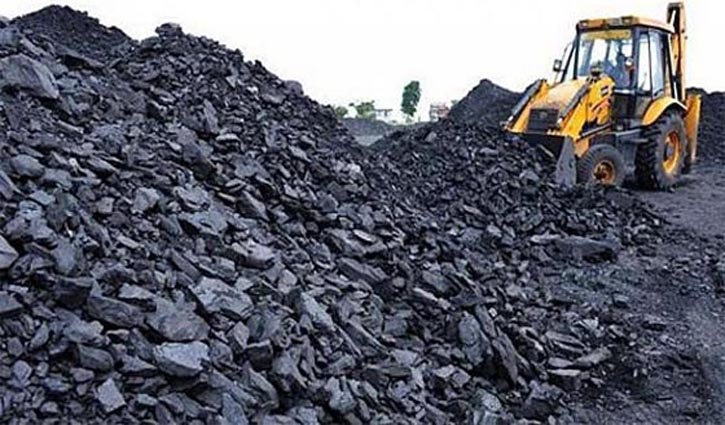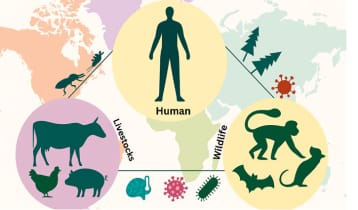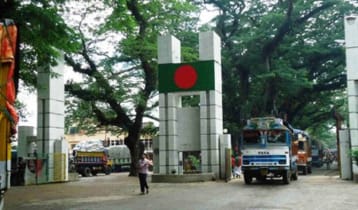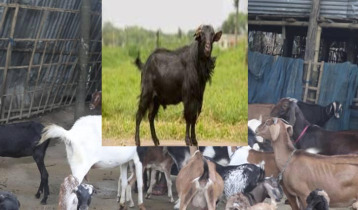Bangladesh has abundant mineral resources, but little investment in mining
Md Nazmul Islam Faruque || risingbd.com

Exploration of mineral resources is increasing in Bangladesh. Despite the increase in exploration and reserves, the amount of investment in extracting mineral resources is low, according to the sector stakeholders.
The Geological Survey of Bangladesh (GSB) of the Ministry of Power, Energy and Mineral Resources determines the exploration, reserves and market value of mineral resources.
Concerned people say that increasing entrepreneurship and investment in the exploration and extraction of mineral resources can be a major source of foreign exchange earnings for the country. Again, they will be able to solve the ongoing energy crisis and even ensure safety.
According to the Geological Survey of Bangladesh (GSB), eight types of naturally occurring mineral resources in the country are worth more than $2.26 trillion. However, the GSB did not take into account the price of natural gas reserves in the country. Out of this, coal is more than 7250 million tonnes. Considering the market price of $175 per tonne, the price of this amount of coal stands at $1.268 trillion. The potential reserves of pit coal are about 600 million tonnes. At $60 per tonne, it is worth about $36 billion. In addition, there are 25.27 billion tonnes of limestone. At $30 per tonne, the amount stands at $758.1 billion. There are 201 million tonnes of hard rock, with a monetary value of $5.42 billion. 230 million tonnes of white clay is worth $29.9 billion. There are 5.11 billion tonnes of turmeric, which is worth $61.4 billion. 2.2 billion tonnes of gravel is worth $33 billion and 625 million tonnes of iron is worth $68.8 billion.
Energy expert and geologist Professor Badrul Imam said, natural gas is being extracted on a large scale from the country's mineral resources. We think there is more gas in the country and it can be extracted. However, proper initiatives and investments in this regard are not satisfactory. There is less activity in coal mining. In addition, there is a huge amount of limestone under the ground, which is also not mined.
The country's Cox's Bazar and Brahmaputra rivers have mineral sands. Large rivers also contain valuable mineral sands. There is also less investment and less effort. However, sand and gravel are being removed.
Former Petrobangla official Md. Farid Uddin said, Bangladesh has a huge amount of natural resources in the sea and land. Coal and gas are particularly important. There was no proper research and investment in extracting these resources.
According to the GSB report, coal reserves in Bangladesh are 1.053 billion tonnes at Jamalganj in Joypurhat, 102 million tonnes at Barapukuria in Dinajpur, 143 million tonnes at Khalaspir in Rangpur and 402 million tonnes at Dighipara in Dinajpur. Besides, 282 million tonnes of pit coal is stored at Hakaluki Haor in Moulvibazar, 150 million tonnes at Baghiya-Chanda Beel in Gopalganj, 75 million tonnes at Dirai in Sunamganj, 52 million tonnes at Shalla, 32 million tonnes at Bijoynagar in Brahmanbaria and 8.0 million tonnes at Kalamauja in Khulna. Besides, the northern district of Naogaon has the highest limestone reserves in the country. More than 25 billion tonnes of limestone is stored in Tajpur, Badalgachhi and Bhagwanpur of the district. Besides, 100 million tonnes of limestone is stored in Joypurhat Sadar, 59 million tonnes in Panchbibi upazila, 17 million tonnes in Baghalibazar of Sunamganj, 12.9 million tonnes in Takerghat and 12.9 million tonnes in Lalghat.
GSB officials said that the location of the discovered coal mine is very deep in the ground. The technology to extract coal at such a depth has not yet become available in Bangladesh. When this coal is extracted, it has an effect on the land.
GSB Director General Mohammad Ilias Hossain said, The GSB's main job is to explore the mineral resources. Many of the mineral resources that have been discovered are in the exploration phase. There is a need for detailed research on whether these discovered mineral resources can be extracted.
Hasan/Mukul























